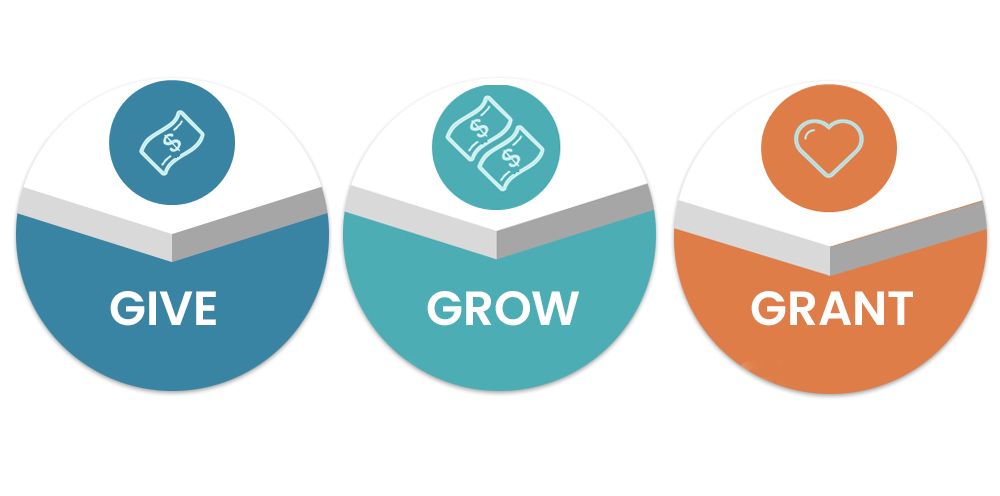What Is a Donor-Advised Fund?
A donor-advised fund may appear to be only for the ultra-wealthy, but it is open to anyone who makes charitable contributions. According to Fidelity Charitable, the donor-advised fund is one tax-efficient way to donate money to charities, which has contributed to it becoming the charitable giving vehicle with the fastest growth rate in the United States.
Many people are turning to donor-advised funds (DAFs) to help them with their charitable endeavors. Indeed, according to the National Philanthropic Trust’s 2021 DAF Report, U.S. investors contributed $34.67 billion to charitable causes through DAFs in 2020, a 27% increase over 2019.
A donor-advised fund, or DAF, is an account into which you can deposit assets for future charitable donations. Contributions to the donor-advised fund are tax deductible for the donor. A sponsoring organization manages the account; the donor recommends how to invest the assets and where to donate them.
The sponsoring organization has legal control over assets once they are deposited into a donor-advised fund. However, as long as you choose a charity that the IRS recognizes as a charitable organization in the United States, the sponsoring organization will usually use your charity of choice.
The IRS is aware of several organizations that have abused the fundamental principles underlying donor-advised funds. These so-called donor-advised funds seem to be designed to produce dubious charitable deductions while also providing donors and their families with unlawful economic benefits (including tax-sheltered investment income for donors) and promoters with unlawful management fees.
Though DAFS has proven to be quite popular, they have also received some criticism regarding how they operate and their benefits to society.
How Does It Work?
An individual contributes to a donor-advised fund by donating to the fund sponsor, a nonprofit foundation, or an investment firm like Charles Schwab or Fidelity Investments. The donor receives a tax deduction in the year the initial fund is established, and the money can then be distributed in subsequent years by the fund sponsor on the donor’s advice.
DAFs are registered 501(c)(3) organizations that are funded with cash, appreciated securities, and other assets. All contributions are deposited into a donor-named account held by the DAF sponsor and eventually donated to a charity of the donor’s choice.
Would-be donors should be aware that the money cannot be withdrawn once the fund is established. When the fund is established, the donor establishes the distribution guidelines. However, the sponsor technically controls the fund, and the donor’s advice on what to fund is non-binding.
Donors can deduct their contributions to the fund from their current taxes. This is an essential feature because it allows a donor to claim a tax deduction for all contributions made at the time of donation, even if the funds are not distributed to a charity until much later.
Benefits of Donor-Advised Funds
Donor-advised funds, in addition to providing financial support to charities, can give the donors more immediate income tax deductions, as well as potentially lower capital gains and estate taxes.
- Lower capital gains taxes
If you donate assets worth more than you paid for them, usually, you can subtract the asset’s current market value rather than the price you paid for it. Additionally, you won’t have to pay capital gains taxes on assets placed in a donor-advised fund.
- Simplicity
A donor-aided fund may enable you to create a single plan to manage your charitable giving while the fund sponsor handles all the administrative work.
Some donors like the simplicity, where they can make one charitable gift and track one gift receipt, and then have the fund sponsor handle multiple charitable donations from that fund without the donor needing additional substantiation.
- A charitable legacy
You can request your will to donate any remaining assets in your donor-advised fund to your favorite charities after you die. There is also the option of passing the assets to heirs so that they can take up the philanthropic mantle and make grants to charities of their choice.
- Tax deductions
You can deduct taxes in the year you contribute assets to the donor-advised fund rather than the year the contribution is made to the charity.
DAFs can offer donors an immediate tax deduction for funds that may not be distributed to a charity for months or years. While this time lag has been criticized, the use of DAFs among high-net-worth households in America has exploded in recent years. To effectively serve their clients, financial advisors must understand how these funds work and when to use them appropriately.


Recent Comments